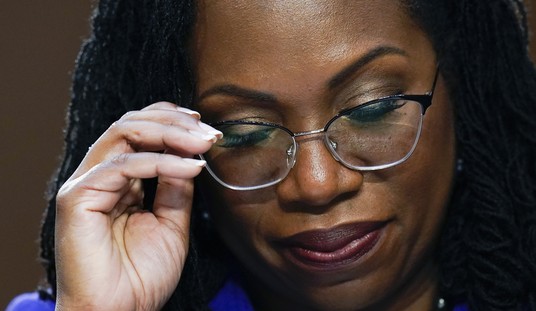The idea of using interstate compacts to take back power from the Federal government has taken serious shape in Washington. Readers will remember the discussion on interstate compacts on this site three months ago. Now Fred Barnes at the Weekly Standard notes the idea has been presented to the newly elected members of Congress and received a warm reception. The idea has taken a practical shape. Barnes writes:
In October, Eric O’Keefe of the Sam Adams Alliance broached the compact strategy with the leaders of Tea Party Patriots, Mark Meckler and Jenny Beth Martin. And in November, they, in turn, took the idea to their national council, gathered in Washington to conduct an orientation session for newly elected members of Congress (only Republicans showed up).
When O’Keefe and a panel explained the strategy, they got a standing ovation from the 180 members of the council. “I’ve never heard of a panel getting a standing ovation,” O’Keefe says. At least 37 of them signed up as state coordinators for winning legislative approval of the health care compact. An experienced political consultant, Mike Barnhart, was hired as national coordinator.
The substantive aim of the proposition was to oppose Obamacare, but the process goal was to use the Interstate Compact mechanism as a vehicle to redistribute government power. If ICs could apply to Obamcare, they can apply to a great deal else. Barnes says, “there’s a bigger reason for forming a compact against Obamacare. By banding together, states would have far more political clout in Washington.”
Interstate compacts aren’t a wild idea. They just haven’t been tapped for such a political purpose before. The authority for compacts was established in the Constitution (Article 1, Section 10), and more than 200 have been set up. One example: the agreement uniting Maryland, Virginia, and the District of Columbia to build and operate the Washington area’s Metro subway system.
In this case the IC mechanism is being turned to a definite political purpose. And its easy to see why some of the several states would want to use it. “By banding together, states would have far more political clout in Washington.” And that in turn would lead to a greater state say in where taxes collected within its borders would be spent. But whatever the ICs are, they are not a challenge to the federal government. In fact, the difficulty with the strategy is that Congress has to agree for it to go into effect. Interstate Compacts can only work with the approval of Congress. As Barnes notes:
It works this way: State legislatures approve a proposal, the states agree on the parts of mutual concern (such as buying insurance across state lines), then the compact is dispatched to Washington for ratification by Congress and the president (though the need for White House assent isn’t spelled out in the Constitution). Ratification turns the compact into federal law.
“Ratification turns the compact into federal law.” How do you get ratification, even with a Republican dominated Congress? And therein lies the challenge. Ultimately the strategy relies on getting the federal government to give up some of the power it has amassed over the decades and return it to the states. The reason the attempt isn’t dead on arrival is that ICs allow the question to be posed through the political process, not via a challenge in the courts or through a cumbersome method of Constitutional Amendment. The very same incentive structure which fuels the bloat of the federal government can fuel its reduction.
That incentive structure is politics. In politics the prime directive is thou shalt be re-elected. An IC on Obamacare brings the voters into the equation immediately over a time-frame that affects the re-electability of officials voting on it. In fact as the Tea Parties showed, it even affects which candidates can be nominated through its impact on the primaries process. If the 2010 elections proved anything, it was that the voters were willing to punish officials for angering the electorate. That lesson will not soon be forgotten. The ICs will make Obamacare an electability issue, and moreover, drag the states into the debate. In year following large Republican gains in the lower house and the state capitols, the potential is clear.
If nothing else, the effort will put not only Obamacare, but the entire momentum of federal expansion to a political test. Choosing Obamacare for its focal point, the tea party activists will make it impossible for the administration to ignore a challenge. In fact the challenge itself springs from Obama decision to make the massive program the centerpiece of his Presidency. From either side of the aisle it was clear from the outset that Obamacare represented a kind of zero-sum game. Having posed it as the embodiment of federal activism; the administration cannot now yield it nor easily allow an Interstate Compact to attain such scope, without suffering a landmark defeat. They upped the ante. Now here is the call.
Whether or not Obamacare will be repealed in 2011 is anybody’s guess. But it’s clear there will be a fight. All ships have sortied, ready or not, toward some political Point Luck to swing on the hinge of fate. It seems apparent that on one level the proponents of the IC would be happy to simply put the question on the table where nobody can avoid it; to force an engagement. From all appearances the clash is now likely.
Link to Wretchard’s novel “No Way In” print edition
Link to Wretchard’s novel “No Way In” Kindle Edition”










Join the conversation as a VIP Member